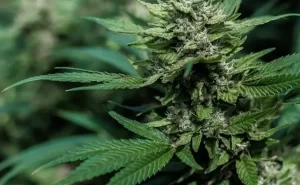Cannabinoids And Their Effect On Weight Gain
Cannabis-related obesity research is diverse and ever-changing. Some studies have found that cannabis causes weight gain, while others demonstrate that it promotes weight loss, implying that its effects on weight are contradictory.
Possible ways that people gain weight:
There is abundant evidence that cannabis can have a variety of physiological effects, some beneficial and others harmful. Increased appetite is one of the most often stated adverse outcomes of cannabis use. This is due to the presence of cannabinoids, which stimulate appetite by interacting with the body’s endocannabinoid system.
Some persons with eating disorders or medical ailments that cause them to lose appetite may benefit from this, but it can be problematic for those trying to lose weight or maintain a healthy weight.
Consuming unhealthy, high-calorie foods while high on cannabis.
A person may gain weight as a result of an increase in calorie intake caused by the heightened hunger that cannabis use produces. This is especially true if the person is consuming unhealthy, high-calorie foods while high on cannabis.
Be aware that different strains of cannabis may have varying effects on hunger levels. Therefore, it is critical to experiment with various types of cannabis to determine which one works best for you.
There is evidence that cannabis use is linked to poor fat metabolism, which may lead to increased calorie intake. Cannabinoids found in cannabis may cause weight gain by inhibiting the body from efficiently metabolizing fat, according to some studies. Why? Because the body is unable to utilize its fat stores for energy as it usually would.
People who use cannabis should be aware of the risks and make informed choices about their consumption habits, even if more research is required to understand the effects of cannabis on weight gainfully.
To counteract any potential adverse effects of cannabis on weight control, it is advised to eat a well-balanced diet and exercise regularly.
Possible methods to lose weight:
Less hunger: Cannabis’s cannabinoids may make you feel less hungry, resulting in less eating and a smaller waistline.
Enhanced physical activity: Research shows that cannabis can encourage more exercise, which may help with body fat loss.
There may be some benefits to boosting insulin sensitivity using cannabis, a plant with a long history of medicinal usage. Insulin is a hormone produced by the pancreas that helps to control blood sugar levels. Insulin sensitivity refers to how efficiently a person’s body uses insulin to control blood sugar levels.
Improved insulin sensitivity can help with weight management.
Researchers believe cannabis’ possible therapeutic benefits on insulin sensitivity could play an essential role in weight management. Improved glucose utilization and insulin sensitivity have been linked to a lower risk of developing type 2 diabetes. Because excess glucose is stored as fat by the body if unused for energy, improved insulin sensitivity can help with weight management.
Cannabinoids present in cannabis affect the human body’s endocannabinoid system. This system impacts appetite management, metabolism, and glucose metabolism. Some cannabinoids, such as CBD and tetrahydrocannabinol (THC), may increase insulin sensitivity, according to studies.
Adults who had previously used cannabis were less likely to develop insulin resistance and had lower fasting insulin levels, according to research published in the American Journal of Medicine. The Journal of Diabetes Research also found that THC improved insulin sensitivity in obese mice.
Addiction and impaired cognitive function are two more potential negative consequences of cannabis use.
However, more significant research is needed to understand how cannabis affects insulin sensitivity and weight control entirely. Addiction and impaired cognitive function are two more potential negative consequences of cannabis use. As a result, anyone considering medical cannabis should consult a doctor first.
To summarize, there is some evidence that cannabis may improve insulin sensitivity, which could have significant implications for weight management and lowering the risk of developing type 2 diabetes. Nonetheless, further research is needed to determine the precise effects of cannabis on insulin sensitivity and to create safe and effective medical dosages.
Overall, the evidence on cannabis’s effects on obesity is conflicting. Further research is needed to determine the actual impact of cannabis on weight.
Some additional concerns are as follows:
The effects of cannabis on weight can vary from person to person due to intrinsic individual differences.
Varied cannabis doses may have varied effects on a person’s weight.
The effect of cannabis on weight may differ based on the method of delivery.
Before using cannabis to lose weight, seek medical counsel from a certified practitioner. With their advice, you may weigh the benefits and drawbacks of cannabis use and make an informed decision.













